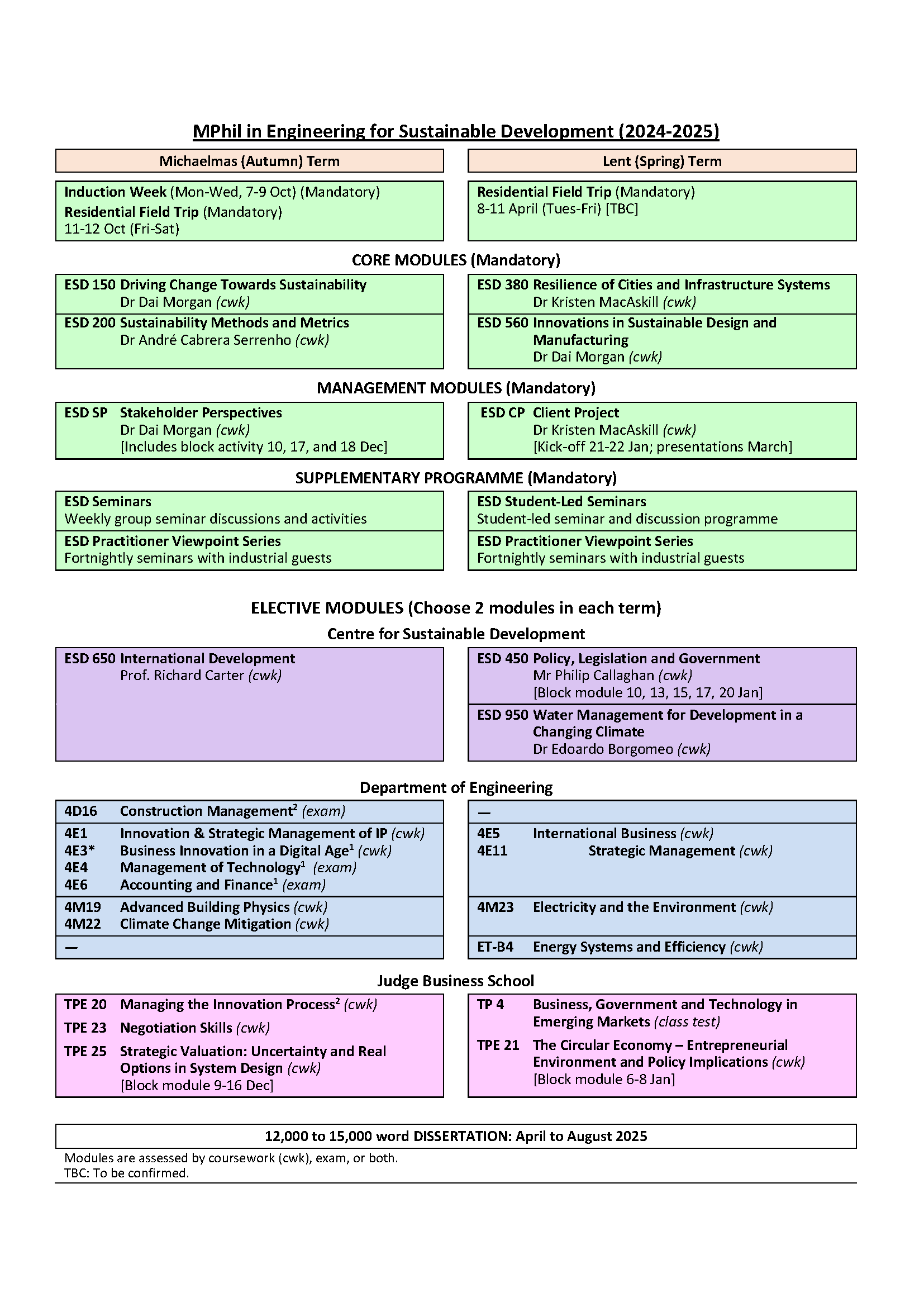Elective Programme
Students also choose four elective modules from a list of around 23 topics offered by the Centre for Sustainable Development, the Engineering Department and other Departments within the University. This allows individuals to tailor their studies to their own needs, providing the flexibility to add more technical depth or explore wider areas in policy, management, and planning and assessment topics. This flexibility is a major strength of the programme.
Opportunities exist to study the way policy, legislation and government set the framework within which engineering solutions must be delivered, and for those interested in international aid and work in developing countries there are modules on international development and the relationships among energy, development and rural livelihood. Students can also study in depth some of the technologies being developed to help engineers implement sustainability, such as sustainable energy, building physics or architectural engineering.
Other modules deal with globalisation issues, whilst opportunities also exist to select combinations of modules relating to negotiation skills, management of technology, policy design and evaluation, and technology policy. Finally, for those who wish to extend their management skills, there are modules available in strategic management, international business economics and accounting and finance.
Management Component
All students take the Management component, which comprises a taught module and a team-based client consultancy project (CCP). The taught module, ESD-SE, covers a range of Stakeholder Engagement activities. The CCP, which takes place in Lent term, provides the opportunity to engage with external organisations and is equivalent to one module.
- Please note that both the course structure and the modules offered for the MPhil are subject to change year on year. This information is representative of the 2020-21 course structure, but some options may not be available in future years.

